On May 27th & 28th, 2022 The Bentway’s season kicks-off with The Street Summit, a two-day event hosted at The Bentway’s Strachan Gate that challenges traditional understandings of city streets and asks how we can create a more inclusive, equitable, and joyful public realm.
Equal parts conference, workshop, artistic intervention, and celebration, this free public event assembles local and international neighbours, urbanists, designers, researchers, city-builders, and artists alike to collectively explore these familiar arteries and their potential for broader social, cultural, and political transformations.
Panels, presentations, and performances will feature guests including: “Hip Hop Architect” Michael Ford; the Commissioner of Chicago Department of Transportation, Gia Biagi; a creative partnership with New York-based WXY Studio; Councillor Kristyn Wong-Tam; Dane Gardener-Williams; Hayden King; Susan Blight; Adam Nicklin of PUBLIC WORK; a panel discussion on the renewal of our city’s streets presented in partnership with Doors Open Toronto; and a social event on Friday night featuring a hip hop/breaking battle with MC Switch B.
Interactive and drop-in workshops for participants of all ages include a pop-up exhibition of Myseum of Toronto’s 36 Questions That Lead to Loving Toronto; an exploration of the various flavours of street food across the city led by Tasha Shea and Howard Tam; a participatory roundtable focused on community care and mutual aid, led by Chemi Lhamo and Miru Yogarajah; a facilitated conversation on the subtle language of queer sexuality in urban ecologies guided by The Bentway Public Space Fellow Jess Misak and artist Maximilian Suillerot Wilke; and a workshop that unravels the processes and tools that define street and place-names, led by Bespoke Collective and The Bentway Public Space Fellow, Faizaan Khan.
ASL interpretation provided by Toronto Sign Language Interpreter Service.
Registration is encouraged!
Schedule of Events
Join us for the opening of the second day of The Street Summit, featuring remarks from the President and CEO of Canadian Urban Institute, Mary Rowe, and a land acknowledgement from Philip Cote.
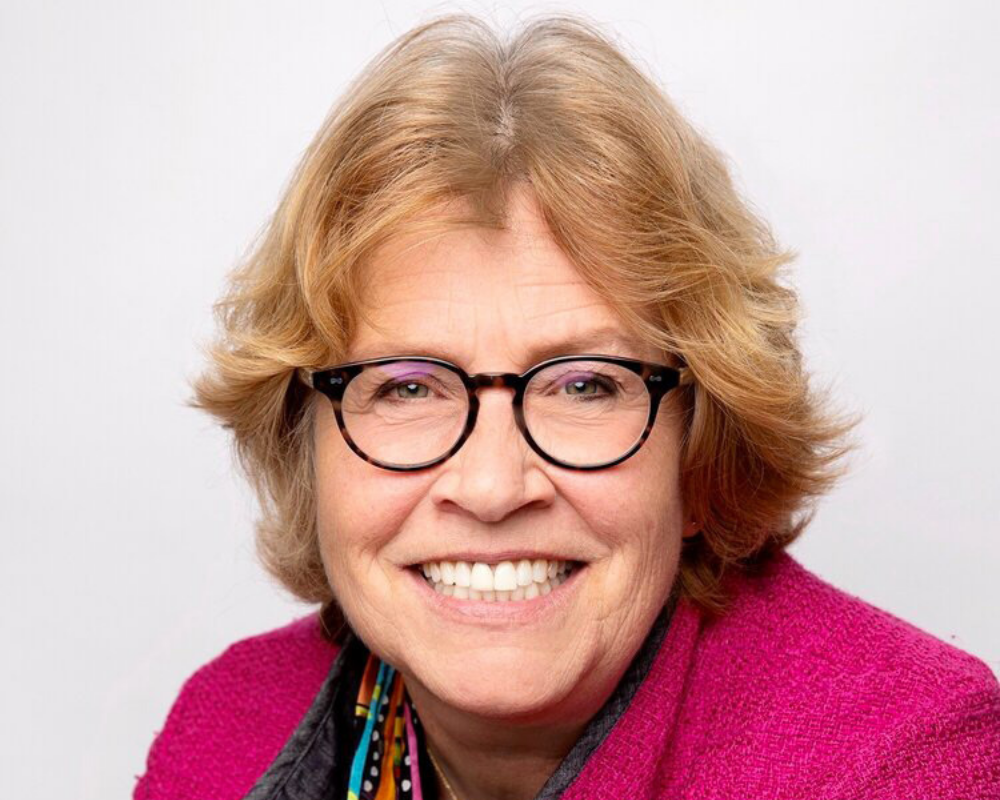
Mary Rowe
Mary W. Rowe is a leading urban advocate and civil society trailblazer who has worked in cities and with communities across Canada and the United States. Mary was President of the Canadian platform Ideas That Matter, a convening and publishing program based on the work of renowned urbanist Jane Jacobs, when a mid-career fellowship with the US-based blue moon fund led her to New Orleans. There she worked with national philanthropy, governments, and community activists to support rebuilding through micro-investments in neighbourhood projects for seven years in the aftermath of Hurricane Katrina. Prior to joining CUI as President and Chief Executive Officer, Mary lived in New York City and served as Executive Vice President of the Municipal Art Society (MASNYC), one of America’s oldest civic advocacy organizations focused on the built environment.
Mary is a frequent contributor to national and international city-building programs, including UN Habitat, the Massey City Summit, The Art of City Building, and the World Urban Forum. She is a frequent media commentator and writer. Under Mary’s leadership, CUI has expanded its work to include an international network from government, industry, community, and city-building professions to advance research and collaborate on solutions to some of our greatest urban challenges. This includes Bring Back Main Street, COVID Signposts, CityWatch, and CityShare, the engagement of several senior fellows to incubate ground-breaking projects in Canada, and the development of CUI x Local, a series of virtual residencies in cities across Canada, to learn from on-the-ground practitioners about what’s working and what’s not, and to share learnings and build opportunities for collaboration between cities. Mary is also the facilitator of BiCEP—an alliance of senior executives leading some of Canada’s most significant urban regions, for which CUI is the secretariat.
Mary is a Senior Fellow with Shorefast, a national charity focused on building community economies, and the creator, executive producer, and host of CityTalk, a regular virtual discussion featuring a diverse line-up of leading and emerging voices on the most pressing issues of the day.
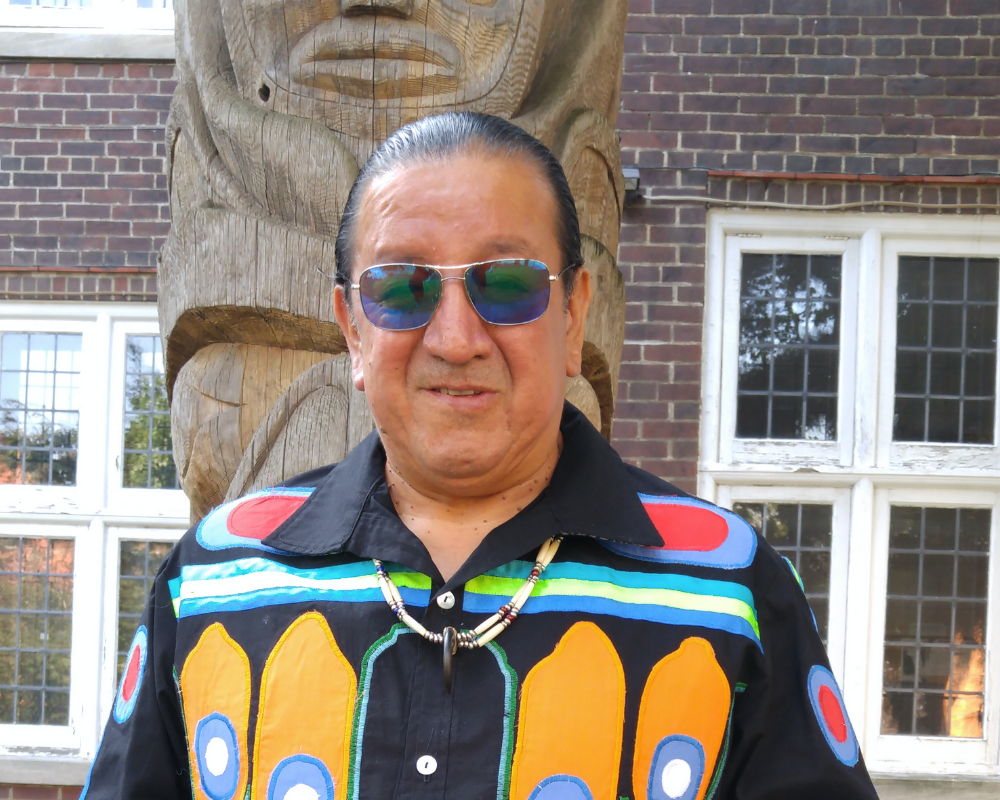
Philip Cote
Philip Cote is Shawnee, Lakota, Mississauga, Potawatomi, Ojibway, Algonquin and Mohawk. Philip is a Sundancer, Pipe Carrier and Sweat Ceremony Leader Medicine keeper. Philip’s spirit name is (Noodjmowin) “The Healer” Misko-gayaashk “Red-Seagull” and he is a member of the Falseface society and Eagle Society.Philip is an Indigenous historian mixing the oral and western histories of Toronto covering the last 13,500 years and as far back as 130,000 years and beyond as far back as two Ice Ages. He is an Indigenous Artist, Activist, Traditional Wisdom Keeper & Historian Since 2005 he has also been a tour guide with “First Story”, providing an Indigenous history of Toronto covering the last 13,500 years.
Presented in partnership with Doors Open Toronto
What happens when you combine Hip Hop Culture with architecture? Join us as leaders of The Hip Hop Architecture Camp walk us through some of their most exciting collaborations where Hip Hop elements are used as a foundation for architecture, urban planning, and design. Explore how Hip Hop draws from the culture of the street, and can help shape the street’s future.

Michael Ford
Michael Ford, AIA Assoc. is a designer, born and raised in the city of Detroit. Ford received his Masters of Architecture degree from the University of Detroit Mercy (UDM), where he completed his graduate thesis titled “Hip Hop Inspired Architecture and Design.” He has worked as a designer at Hamilton Anderson Associates located in Detroit, Mich. and as an adjunct professor at his alma mater. Ford has also worked as a designer at Flad Architects located in Madison, Wisc.
Ford has spent the past decade working to blur the lines between professional practice and academia. He is dedicated to stimulating cross-disciplinary discourse between practitioners and residents on the sociological and cultural implications of architecture and urban planning on its inhabitants. More specifically, Ford has unveiled the subconscious roles of historical architectural figures such as LeCorbusier in envisioning the built environments which necessitated the birth of hip hop culture.
Ford’s Hip Hop Architecture research has been published in a variety of places including FastCo Design, Blavity, The Fader, CityLab, and Vibe Magazine. Along with these publications Ford has been a guest lecturer at several universities including the University of Illinois Urbana – Champaign, University of Detroit Mercy, UPenn, and Carnegie Mellon University.
Michael Ford was invited to keynote the 2017 American Institute of Architects National Conference on Architecture and he delivered the keynote at 2016 SXSW Eco Conference. Through his years of research, publications, and lectures, Michael Ford is recognized in the architectural and hip hop communities as a galvanizer and pioneer of a new era of architectural practitioners. Currently, Ford is an instructor in the architecture program at Madison College, and Co-Founder of The Urban Arts Collective, where he created and conducts The Hip Hop Architecture Camp™ with the mission to increase the number of minorities in architecture and urban planning.
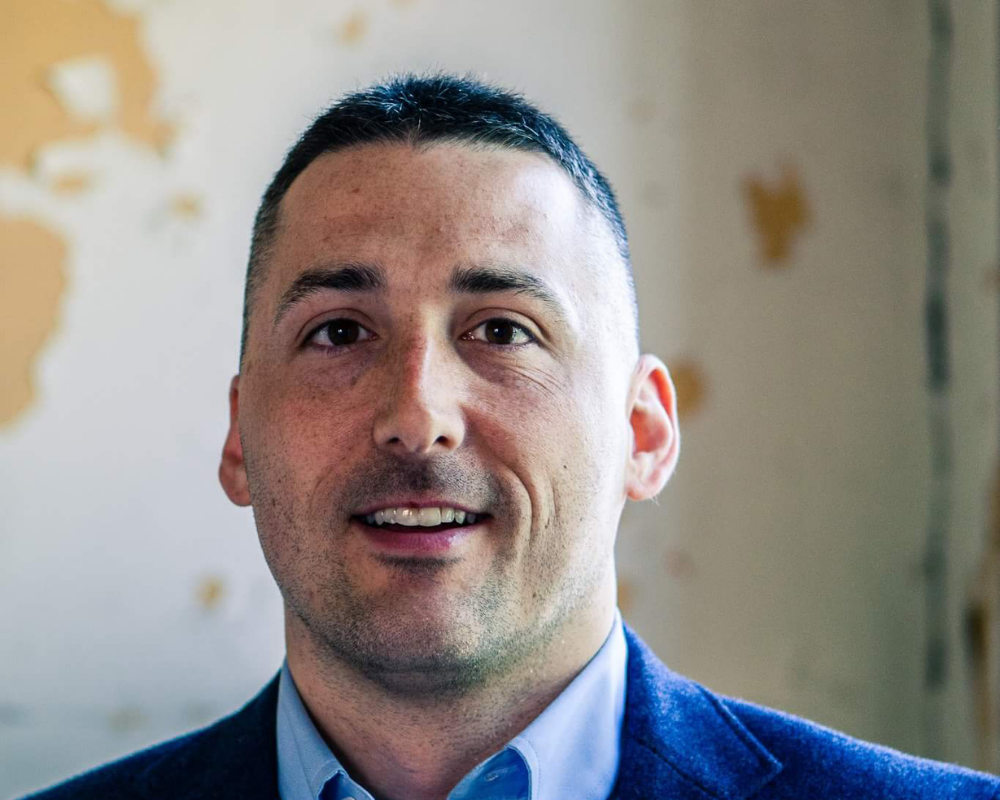
Woodrow Hoffer II
Woodrow Hoffer II is a designer, community activist, and instructor, born and raised in metropolitan Detroit. He received his Masters of Architecture degree from the University of Detroit Mercy in 2006, while completing a Summer abroad at Istituto Statale D’arte Volterra, in Volterra, Italy. He has spent both his professional and personal career dedicated to inspiring the next generation of architects, activists, athletes, and leaders. His work with the internationally respected Hip Hop Architecture Camp, engages youth to explore the synchronicity between architecture and Hip Hop culture and music that was born out of the failures of the built environment.
Mutual aid and community organising are fundamental for a community to thrive, and as Ontario’s housing crisis continues to intensify, this work is ever more urgent. Parkdale People’s Economy (PPE) is a network of over 30 community-based organisations that collaborates to build decent work, shared wealth, and equitable development in Parkdale. For The Street Summit, Miru and Mercedes Sharpe-Zayas from PPE shares their strategies for organising with place-based practices. These essential actions will inform this participatory roundtable workshop and reveal the future of street design centred on community care.
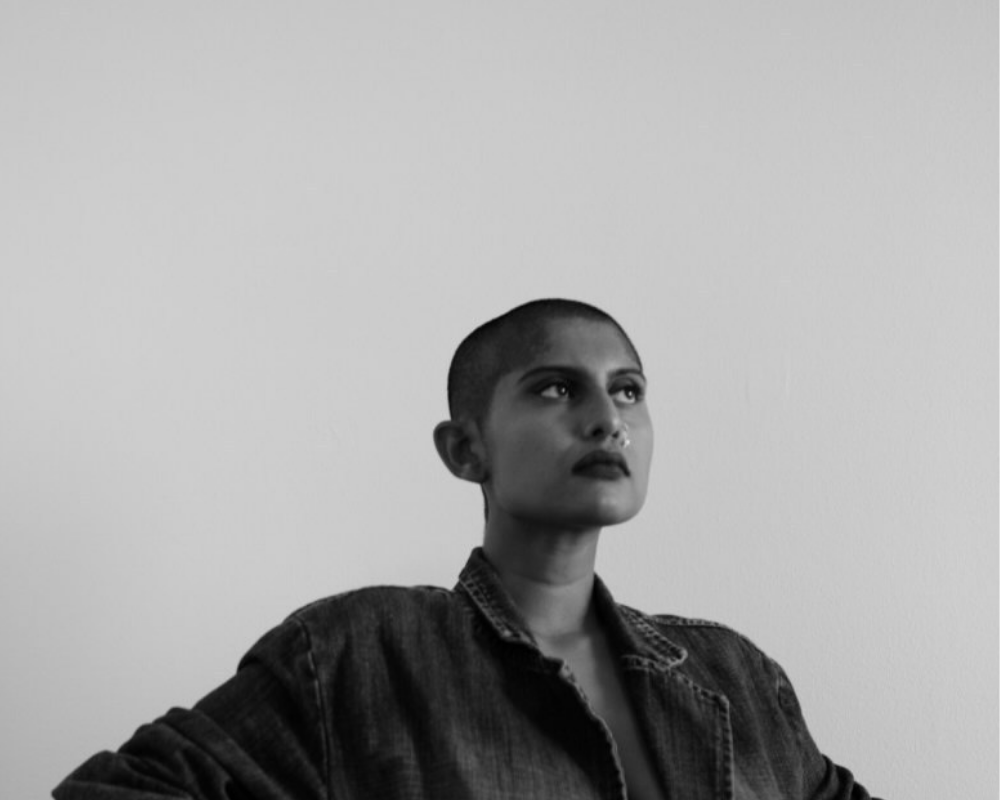
Miru
Miru is a filmmaker, writer, and Community Benefits Organizer at Parkdale People’s Economy. Their works have been produced by National Film Board of Canada, premiered at the 2020 Inside Out Film Festival, 2020 Regent Park Film Festival and premiered at the 2021 F-O-R-M Film Festival. They received their Masters of Public Policy degree from the University of Toronto in 2019 and before that, they double-majored in Ethnic Studies, Political Science, and Liberal Arts Honours.They were selected for the Emerging 20 program through Reelworld Film Festival and a 2021 Local fellow. They have written on inequities reproduced through algorithms, the failures of the Employment Insurance system in Canada, the impacts of gentrification in East Austin and Vancouver, as well as xenophobic immigration policies. They have words in Briarpatch Magazine, GUTS Magazine, LOGO TV, and many more.
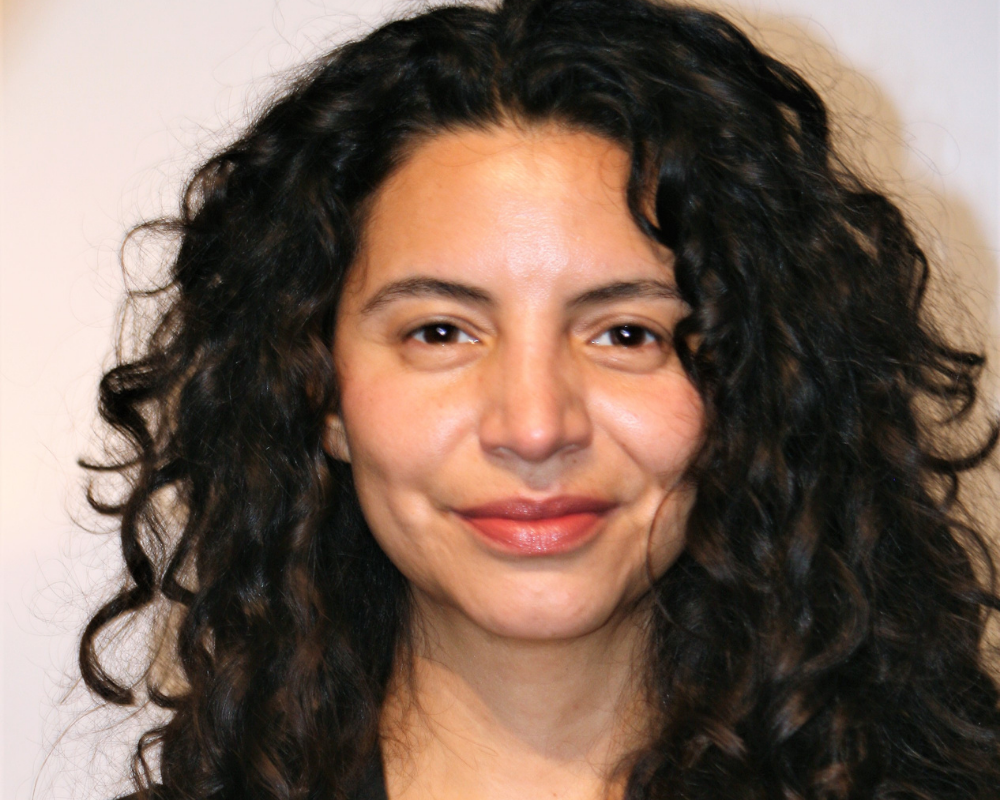
Ana Teresa Portillo
Ana Teresa Portillo (She/They) works as the Community Benefits Coordinator with the Parkdale People’s Economy, a network of 30+ community organizations and hundreds of community members working towards decent work, equitable development and shared wealth. Her experience in anti-oppressive intersectional transformative theory and practice grounds her community organizing in tenant rights, equitable development, community safety and mutual aid. Ana Teresa is a PhD candidate in Social and Political Thought at York University with interests in anti-racist feminisms, post-colonial theory and place based transformative politics. She is also a member of the Power Lab, a collective of organizers building economic and democratic power within persistently excluded and racialized communities.
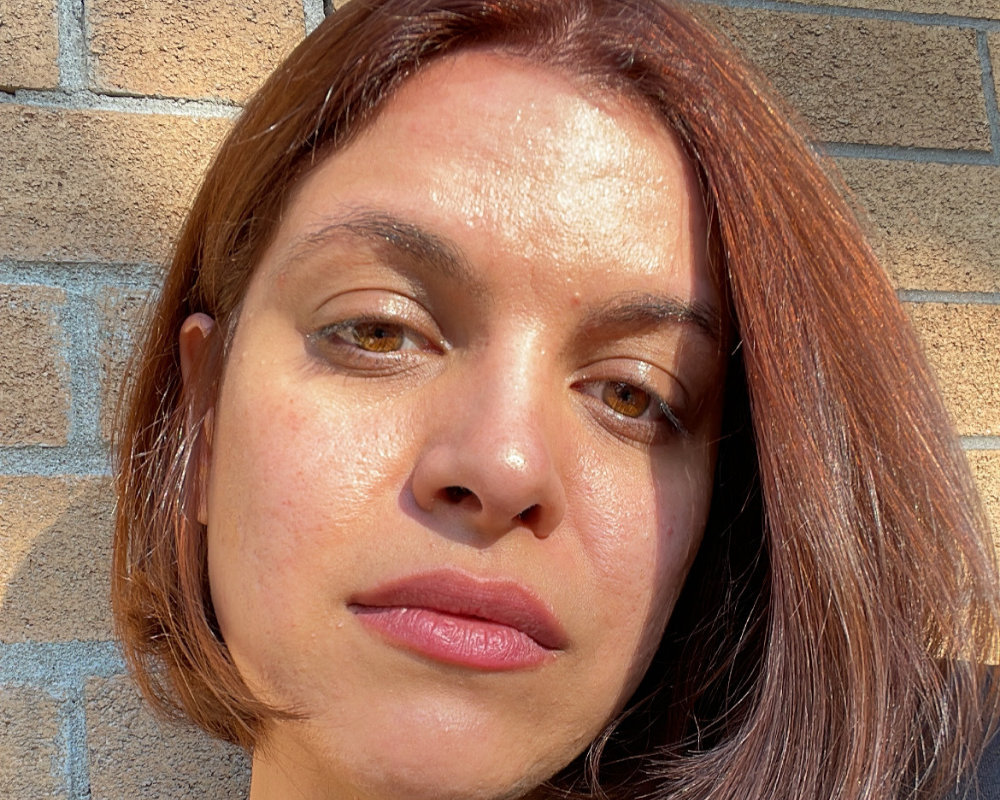
Mercedes Sharpe-Zayas
Mercedes Sharpe Zayas is a community planner committed to movement building and economic justice in the urban form. Mercedes has been cultivating her participatory planning practice for the past five years as the Planning Coordinator for the Parkdale People’s Economy, a network of over 30 community-based organizations and hundreds of community members organizing towards decent work, shared wealth, and equitable development in Parkdale. She has also worked as a Policy Research Intern at the City of Toronto’s Economic Development and Culture Division, a Research Assistant for the Metcalf Foundation’s Inclusive Local Economies Program, and a Graduate Research Assistant with The Public Studio. She holds a Master of Science in Urban Planning from the University of Toronto and a Bachelor of Arts in Honours Anthropology from McGill University.
In a creative collaboration between Christina Bagatavicius and Alia Rasul of Bespoke Collective and Bentway Public Space Fellow Faizaan Khan, this workshop will unravel the processes and tools that define public place-names. By interrogating the Bentway’s own name and the campaign that created it, we will take a journey together to uncover what stories were left behind and how the process of naming can better shape our understanding of our city, our streets, and ourselves.
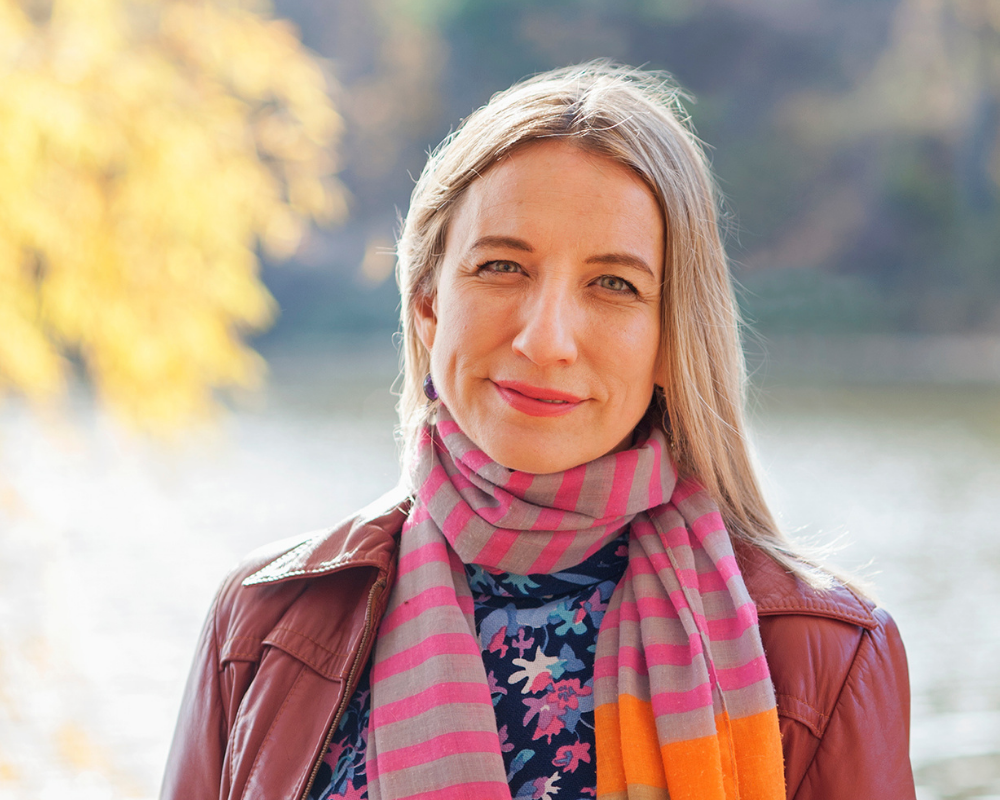
Christina Bagatavicius
Christina Bagatavicius is the creative force behind Bespoke Collective, a forward-looking consultancy started over a decade ago that resides at the intersection of culture, public good, and the future. She is deeply invested in making lasting positive change through the arts, city-building, and creative well-being. In 2016, Christina worked on the naming of Project: Under Gardiner, now known as The Bentway, which was a citywide, community-based outreach campaign engaging Torontonians in naming the space underneath the Gardiner. Since this project, Christina has led a series of naming processes for public spaces and she is continually questioning the power that names hold and how we can design better processes that are rooted in community. Current clients include: the Toronto Biennial of Art, Ontario Place, Waterfront Toronto, Indigenous Fashion Arts, and Sinai Health System.
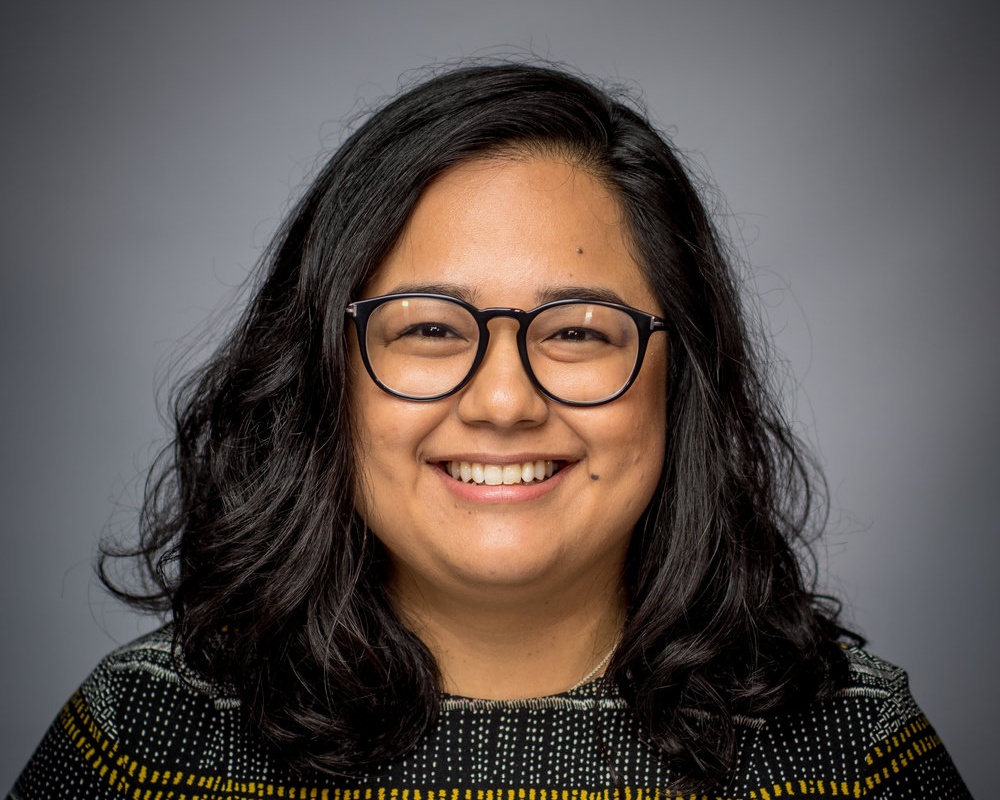
Alia Ceniza Rasul
Alia Ceniza Rasul is a process-driven project manager known for her resourcefulness and creative problem-solving. She is responsible for the day-to-day management for key projects and increasingly has played a vital role in shaping Bespoke’s public engagement work. To date, she has successfully delivered a range of projects for core clients that include: Waterfront Toronto, Sidewalk Labs, the City of Toronto, and PASAN.
Before joining Bespoke, Alia was the Inclusion Director at Bad Dog Theatre, where she led the development of the inclusion and diversity framework within the performing arts. She is currently the project lead for “Our Cities on Our Stages”, Bad Dog’s annual inclusion and diversity symposium (community engagement). Alia is a Canadian Comedy Award nominated writer and performer and has a burgeoning career in comedy and theatre. She earned her B.A. from McGill University in Economics and Psychology and was raised in Dubai.

Faizaan Khan
Faizaan Khan is an emerging city-builder with a background in design and non-profit programming. Their work prioritises a multidisciplinary, empathy-driven approach which has led to their involvement in a diversity of projects, including public art, heritage interpretation master plans, and youth-focused education programs. Faizaan takes a keen interest in urban data, built heritage, and suburban placekeeping, which he views as integral aspects of critical city-building practice in Toronto.
Since graduating from the University of Toronto with a Bachelor of Arts in the Technology of Architecture, Landscape, and Urbanism, Faizaan has worked as a Program Coordinator at Evergreen, supporting design-thinking programs like the Future City Builders and Housing Supply Challenge Support Program. When not at work, you’ll probably find Faizaan people-watching on the subway.
Presented by The Hip Hop Architecture Camp
Join Michael Ford and Woodrow Hoffer II from The Hip Hop Architecture Camp to creatively convert Hip Hop music from your favourite Toronto artists into your own Architecture. During this workshop you will analyse lyrics, extracting rhyme schemes and patterns which can then be used as you create your own street installation under The Bentway.

Michael Ford
Michael Ford, AIA Assoc. is a designer, born and raised in the city of Detroit. Ford received his Masters of Architecture degree from the University of Detroit Mercy (UDM), where he completed his graduate thesis titled “Hip Hop Inspired Architecture and Design.” He has worked as a designer at Hamilton Anderson Associates located in Detroit, Mich. and as an adjunct professor at his alma mater. Ford has also worked as a designer at Flad Architects located in Madison, Wisc.
Ford has spent the past decade working to blur the lines between professional practice and academia. He is dedicated to stimulating cross-disciplinary discourse between practitioners and residents on the sociological and cultural implications of architecture and urban planning on its inhabitants. More specifically, Ford has unveiled the subconscious roles of historical architectural figures such as LeCorbusier in envisioning the built environments which necessitated the birth of hip hop culture.
Ford’s Hip Hop Architecture research has been published in a variety of places including FastCo Design, Blavity, The Fader, CityLab, and Vibe Magazine. Along with these publications Ford has been a guest lecturer at several universities including the University of Illinois Urbana – Champaign, University of Detroit Mercy, UPenn, and Carnegie Mellon University.
Michael Ford was invited to keynote the 2017 American Institute of Architects National Conference on Architecture and he delivered the keynote at 2016 SXSW Eco Conference. Through his years of research, publications, and lectures, Michael Ford is recognized in the architectural and hip hop communities as a galvanizer and pioneer of a new era of architectural practitioners. Currently, Ford is an instructor in the architecture program at Madison College, and Co-Founder of The Urban Arts Collective, where he created and conducts The Hip Hop Architecture Camp™ with the mission to increase the number of minorities in architecture and urban planning.

Woodrow Hoffer II
Woodrow Hoffer II is a designer, community activist and instructor, born and raised in metropolitan Detroit. He received his Masters of Architecture degree from the University of Detroit Mercy in 2006, while completing a summer abroad at Istituto Statale D’arte Volterra, in Volterra, Italy. He has spent both his professional and personal career dedicated to inspiring the next generation of architects, activists, athletes and leaders. His work with the internationally respected Hip Hop Architecture Camp, engages youth to explore the synchronicity between architecture and Hip Hop culture and music that was born out of the failures of the built environment.
Presented in partnership with Toronto Society of Architects and Doors Open Toronto
Our cities are at a turning point. The last two years have laid bare many of the social, cultural, and economic inequalities, injustices, and imbalances deep-seated into our institutions and structures. The climate crisis continues to accelerate, affecting not only humans but all living creatures. Change is necessary. We must reconsider our relationships with our built environment, our streets, our heritage and history, and natural systems—renewing existing relationships and forging new ones. We know business as usual will not deliver the just and equitable city we are striving for. But how do we translate our aspirations into the built environment and shape our future public spaces?
On this return of Architects Talk, The Bentway, Doors Open Toronto, and The Toronto Society of Architects, invite 5 speakers to share with us the work that must be done to close the gap between the city we have and the one we desire.
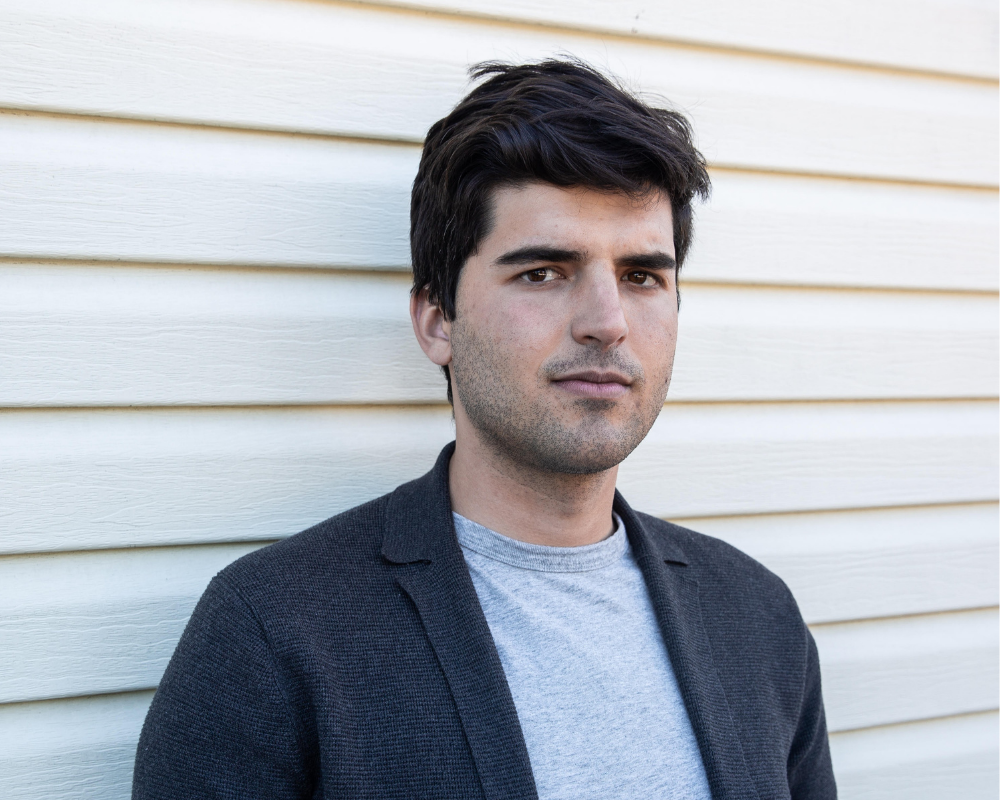
Stefan Novakovic
Stefan Novakovic is a Toronto-based writer and editor specialising in architecture and urbanism. Formerly a Senior Editor at Azure Magazine, Stefan was previously Associate Editor at Canadian Architect, and an Assistant Editor at UrbanToronto.ca. His writing has also appeared in a wide range of publications, including Canadian Interiors, Designlines, Building Magazine, the New York Review of Architecture, the McGill International Review and Torontoist.
Stefan’s journalism and research focuses on architecture and urban geography, exploring the public dynamics of the architectural profession, as well as architecture’s role in shaping the human and economic geography of North America. Recently, his work has focused on mid-century social housing, urban land use and the evolving “spatial fix” of capitalism, investigating the role of e-commerce in transforming suburban landscapes.
Stefan has also appeared as a speaker at the Architecture and Design Film Festival, Toronto’s Interior Design Show, the Ontario Association of Architects Conference, the University of Toronto Munk School’s Walter Gordon Symposium on Public Policy, and Architect@Work International. He has also presented original research at the 46th Society for the Study of Architecture in Canada Conference. He is the winner of a Canadian National Magazine Award (B2B) and a Canadian Online Publishing Award.
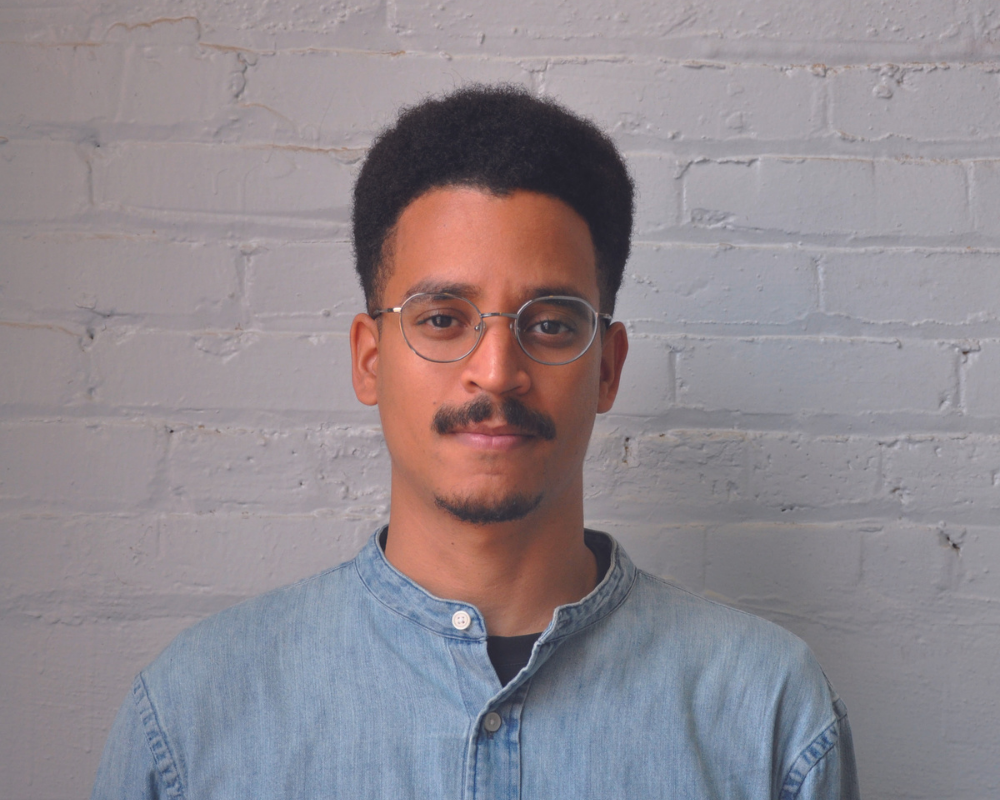
Tura Cousins Wilson
Tura Cousins Wilson is an architect from Toronto and co-founder of the Studio of Contemporary Architecture (SOCA). He is a licensed architect in Ontario and the Netherlands and also a founding member of BAIDA. Tura’s professional experience spans a variety of scales including multi-unit residential, large-scale mixed-use developments, libraries, and urban design. Tura has been working with community groups to address the challenges and opportunities of building a vibrant Little Jamaica neighbourhood in Toronto and recently co-wrote a report: A Black Business Conversation – On Planning for the Future of Black Businesses and Residents on Eglinton Avenue West.
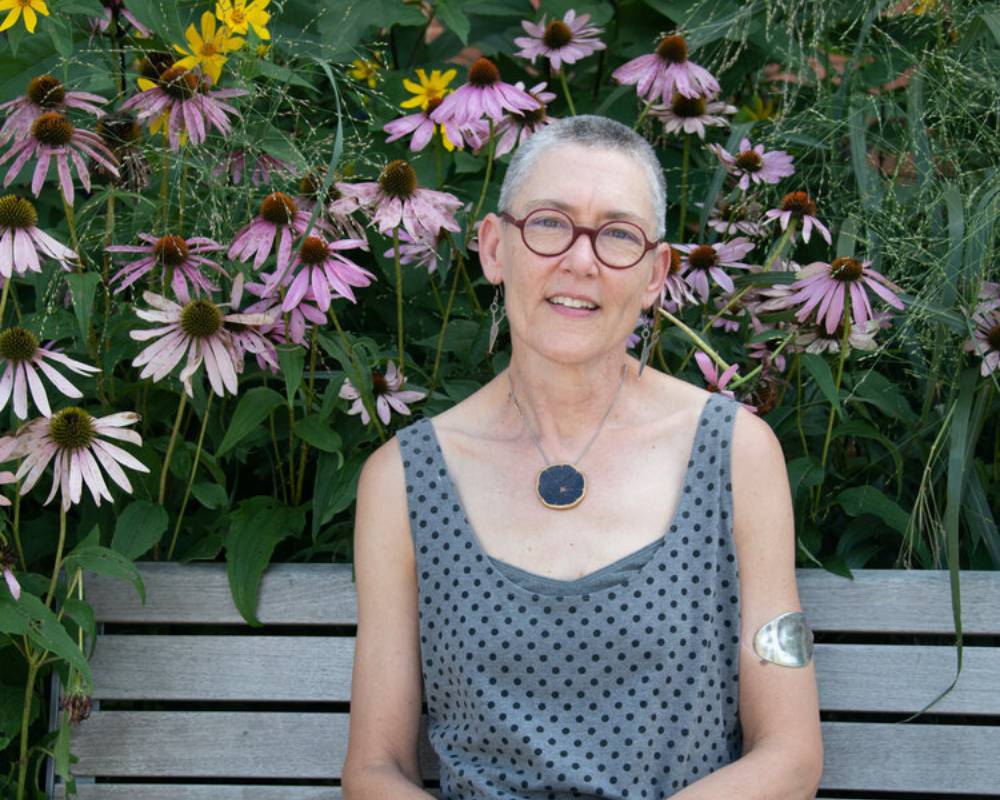
Lorraine Johnson
Lorraine Johnson is the author of many books on gardening with native plants and creating habitat in yards, balconies, boulevards, community gardens and other public spaces. Her books include 100 Easy-to-Grow Native Plants for Canadian Gardens; Grow Wild!; The New Ontario Naturalized Garden; and Tending the Earth, among other titles. Her most recent book, co-authored with Sheila Colla, is A Garden for the Rusty-Patched Bumblebee: Creating Habitat for Native Pollinators, and is coming out this spring. A long-time cultivation activist and urban agriculture advocate, Lorraine is active in efforts to reform grass and weeds bylaws in support of biodiversity.
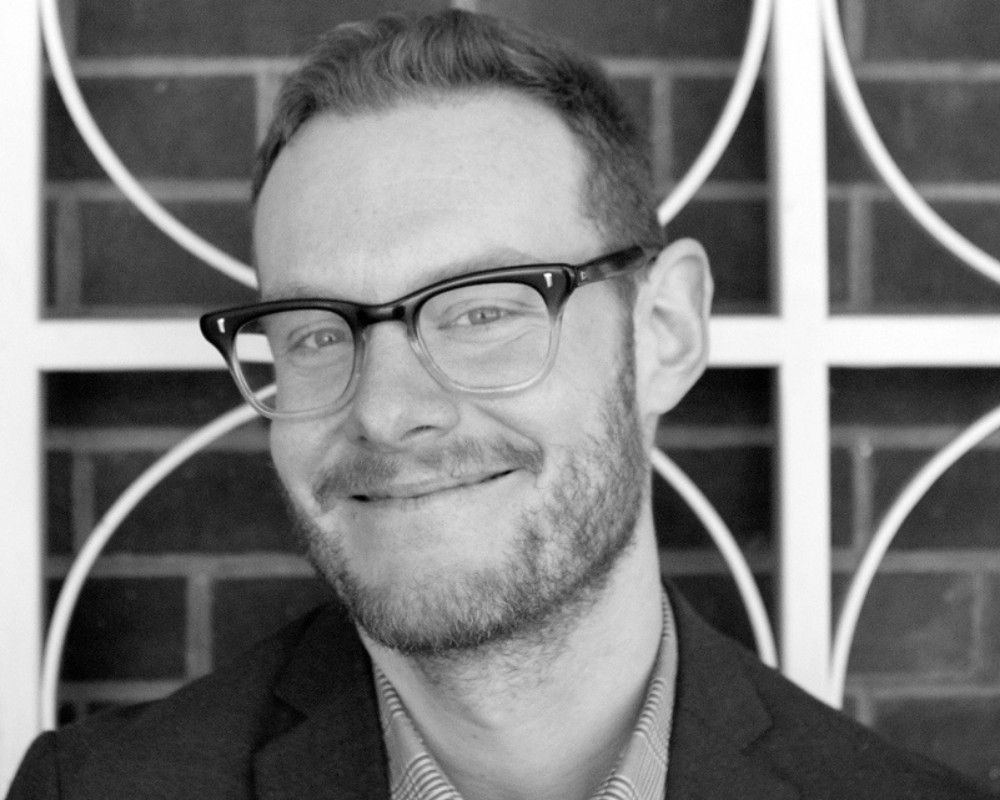
Graeme Stewart
Graeme Stewart OAA FRAIC CIP RPP CAHP is Principal of Toronto-based ERA Architects, a founding director of the Centre for Urban Growth and Renewal, and the key initiator of the Tower Renewal Partnership, a cross-sectoral collaborative supporting policy and action toward more equitable and resilient urban regions including affordable housing renewal, green financing, and community reinvestment. .
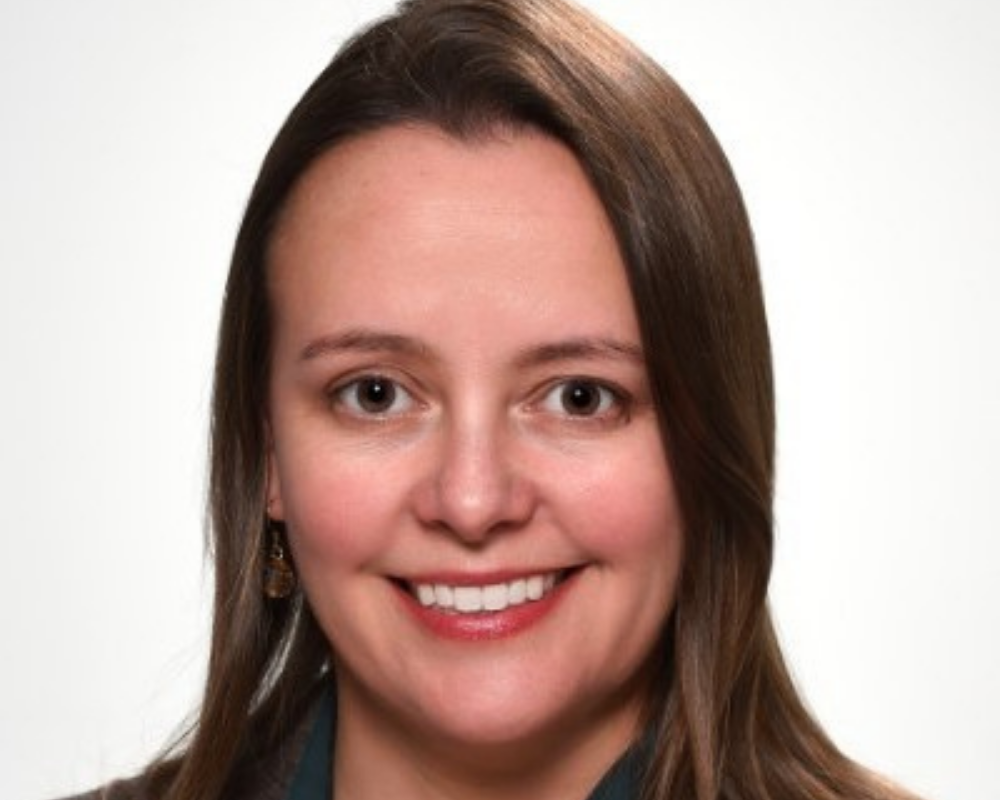
Selina Young
Selina Young is Métis from northern Saskatchewan. She has been a guest on Anishnawbe and Haudenosaunee territory in and around Toronto her whole life. Selina is passionate about the outdoors and spends hours running and walking through local urban parks along the Credit River and Lake Ontario.
She has over 25 years’ experience in public service, having worked for governments in Ontario, Canada and Scotland and is currently the Director of the Indigenous Affairs Office at the City of Toronto.
She has volunteered throughout her life most recently as a Board Member for Katimavik and a member of the Toronto Public Library’s Indigenous Advisory Council.
At the end of our two-day Summit, we’ll be joined onstage by Paddy Harrington, Founder of Frontier. Throughout the Summit Frontier will have been creating Live Magazine, a digital, interactive publication synthesising our key findings, and Paddy will share some of the highlights for you from the Mainstage.
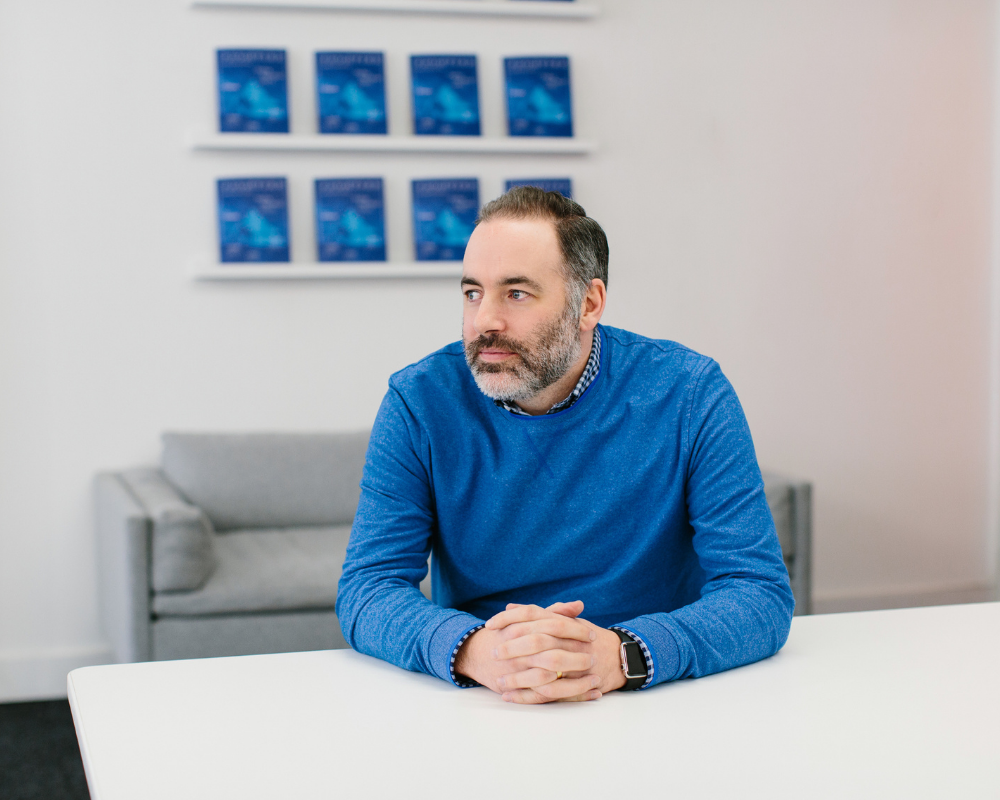
Paddy Harrington
Paddy Harrington is the founder of Frontier, a design office focused on collaborations, media, and products with a philosophy of purpose-driven performance. After earning degrees in literature and architecture, he has worked for nearly twenty years in research, architecture, advertising, and design. He has collaborated with PepsiCo, MaRS, Unilever, The National Arts Centre, Electronic Arts, the Holy City of Mecca, and the Fogo Island Inn in Newfoundland, among many other clients. He is an award-winning writer and filmmaker and has spoken at several design conferences as well as at Brown University, Harvard University, and the Central Academy of Fine Arts in Beijing. Paddy is formerly the SVP Design Innovation and Digital Creative Director at Indigo Books and, prior to that, Executive Creative Director at Bruce Mau Design.
Presented by Myseum of Toronto.
How do you build closeness with your city and those you share it with?
36 Questions That Lead to Loving Toronto: Bentway Edition is a pop up experience that invites Torontonians to explore the commitment we have to the city and to each other. Based on a psychological study by Arthur Aron (and others) and popularized by the New York Times article “The 36 Questions That Lead to Love”, Myseum asks a series of questions that explore civic love.
Join us at The Bentway to share your answers, while deepening connections with loved ones, friends, and neighbours. 36 Questions: Bentway Edition will feature questions about Toronto streets, as part of The Bentway’s Street Summit. Get deep, have fun, be brutally honest about what you love or hate (and everything in between) about our city streets. Ignite the spark to fall in love with Toronto for the first time, or all over again.
36 Questions: Bentway Edition is a pop-up version of 36 Questions That Lead to Loving TO exhibition at the Myseum Space (401 Richmond St. W. LL01), on until October 9, 2022. To learn more visit myseumoftoronto.com.
With a little imagination, the street can become a canvas for creative intervention. In a new public artwork by Raquel Da Silva, and created in partnership with New York-based WXY Studio, we invite you to see our own street anew. Available to view throughout both days of the Summit, this work encourages you to consider the ways in which our streetscape can be transformed through the power of art and creativity.
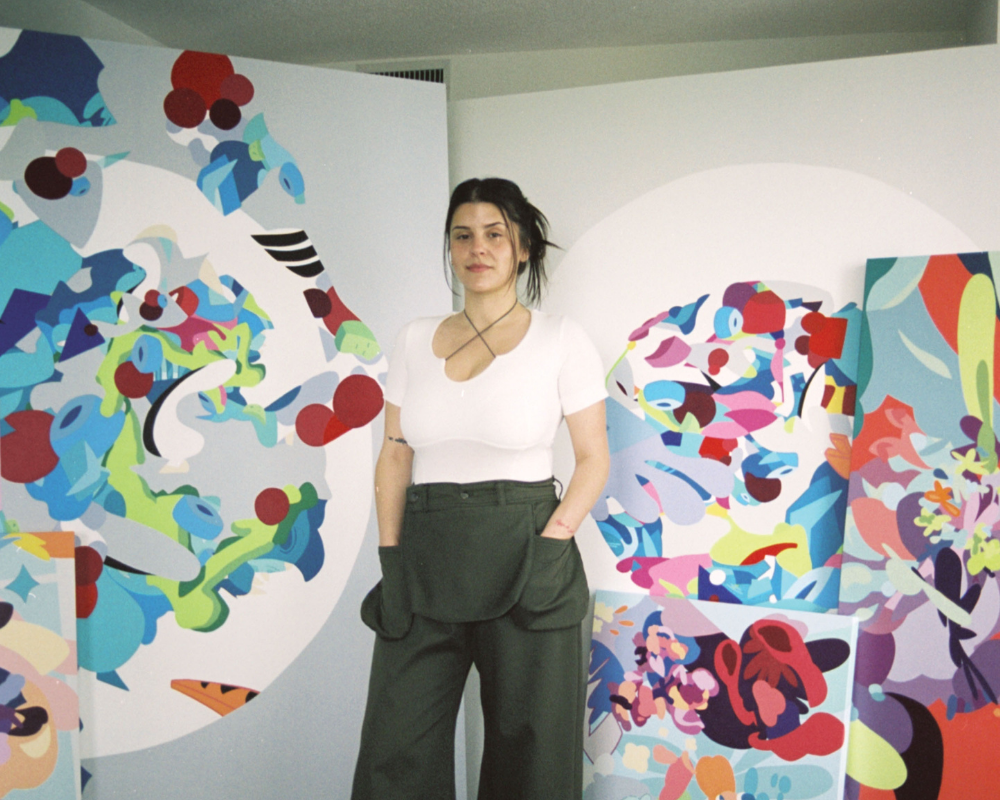
Raquel Da Silva
Raquel Da Silva is a visual artist and designer based in Toronto, Canada. She graduated from OCAD University with a BFA in 2020. Raquel’s work is focused on creating abstract environments and exploring how cultural stories and mythologies are embedded into contemporary culture. Selected exhibitions include Ja Senti, Vai Nascer by PADA Gallery and Residency in Lisbon, Portugal, and An Index presented by Museum of Contemporary Art, Toronto.
Presented by National Film Board
In partnership with the National Film Board of Canada, The Bentway’s Street Summit presents a series of family-friendly short films offering creative, educational, and entertaining views of our streets across space and over time, including how we interact with them and how they shape our cities
This summer at The Bentway Mia & Eric and Action Hero are cutting up Toronto’s entire ‘Municipal Code for the Use of Streets and Sidewalks’ and rearranging the words into a new set of speculative actions, permissions, and proposals for the future of the city. You are invited to rewrite and submit your very own Future Perfect by-law. These new Future Perfect by-laws will appear on billboards around Toronto between May and August.
Learn more at futureperfectbyelaws.com
Through a coordinated effort with the City, The Bentway is developing an Under Gardiner Public Realm Plan (Under Gardiner PRP) which will build upon the Gardiner Rehabilitation project and the larger waterfront revitalization. The plan aims to reintroduce the Under Gardiner corridor as an essential part of Toronto’s downtown public realm.
Members of the public are invited to learn more about this ongoing work and contribute their thoughts, ideas, feedback, and stories to inform the next stage of the planning process.
Stop by to chat about the opportunities, constraints, and priorities that will give definition to the public space below our iconic elevated expressway.
Live Magazine will be at The Street Summit! Live Magazine is a digital publication by the design studio Frontier, who will attend the event and create multimedia stories about its most stimulating ideas and conversations. Frontier will also become part of the proceedings, building a pop-up space to talk with attendees, gather on-the-spot reactions, and create and sell limited-run objects. Each issue is published online during the event, giving immediate context and insight that becomes a lasting artifact. Come say hi at The Street Summit and add your voice to this issue.
This issue goes live May 27 and will be updated during, and following, the Street Summit. Read it at livemagazine.ca/bentway and learn more about Frontier at frontier.is.

